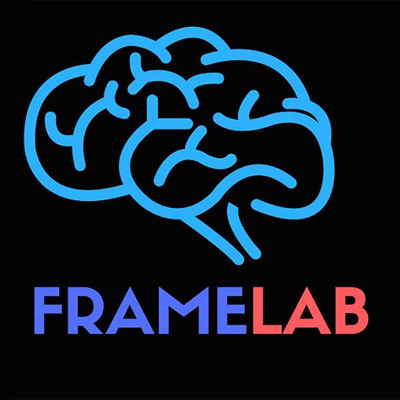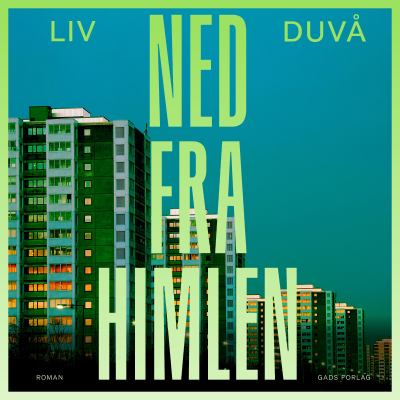
FrameLab Podcast
Podcast af FrameLab Consulting LLC
Prøv gratis i 7 dage
99,00 kr. / måned efter prøveperiode.Ingen binding.

Mere end 1 million lyttere
Du vil elske Podimo, og du er ikke alene
Rated 4.7 in the App Store
Læs mere FrameLab Podcast
A podcast about politics, language, and your brain. Hosts: Dr. George Lakoff and Gil Durán: http://www.theframelab.org
Alle episoder
28 episoderIn this mini-episode of the FrameLab podcast, Gil Duran talks about the viral "Keep Democracy Alive in 2025" list of tips that he and Dr. George Lakoff published on the FrameLab newsletter. http://www.theframelab.org
In this episode of FrameLab, Gil Duran and Dr. George Lakoff discuss the implications of Elon Musk's proposed cuts to the federal budget, framing it as a move towards the destruction of government under the guise of efficiency. They explore the use of Orwellian language in political discourse, particularly how terms can mislead the public about the true nature of government actions. The conversation emphasizes the need for Democrats and progressives to reframe these discussions to counteract misleading narratives. Takeaways: Takeaways Elon Musk's plans are framed as government efficiency but aim to destroy it. Orwellian language can mislead the public about government actions. Democrats must avoid adopting the framing set by their opponents. Privatization is a long-term goal of the Republican agenda. The term 'Department of Government Efficiency' is misleading and Orwellian. Musk's claims of saving money are actually about cutting public services. The public needs to be aware of the implications of budget cuts. Framing is crucial in political discourse and can shape public perception. Democrats should create their own narratives to counteract misleading terms. The conversation highlights the importance of language in politics.
Summary In this conversation, Gil Duran and Brooke Harrington delve into the dynamics of wealth inequality, focusing on the rise of the 'Broligarchs'—wealthy tech figures who are increasingly influencing politics. They discuss the ideological underpinnings of this new class, their political ambitions, and the implications for democracy and governance. Harrington highlights the dangers posed by their agenda, particularly regarding women's roles, public policy changes, and the potential destabilization of nation-states through crypto. The conversation concludes with reflections on the need for social responsibility and the importance of collective action against the growing power of the ultra-wealthy. Takeaways -The emergence of a new ideology among the ultra-wealthy. -Broligarchs have a distinctive political agenda that goes beyond tax cuts. -The influence of the Broligarchs is reshaping political landscapes. -Women are being excluded from the public sphere by Broligarch ideology. -The Broligarchs aim to dismantle nation-states and cross-national alliances. -Public policy changes will favor the interests of the ultra-wealthy. -Crypto is seen as a tool to undermine the US dollar and nation-states. -Politicians are increasingly influenced by the financial power of Broligarchs. -Resistance to the Broligarchs will require collective action and integrity. -Social stigma can be a powerful tool against the ultra-wealthy. Chapters 00:00: Introduction to Inequality and Dystopia 07:19: Broligarchs and Their Political Agenda 13:53: Predictions for the Future of Governance 20:26: The Crypto Conundrum 30:18: The Role of Integrity in Governance
Summary: In this episode of the Framelab Podcast, Gil Duran and Dr. George Lakoff discuss the implications of Donald Trump's potential return to the White House in 2025. They explore the concept of strict father morality, its impact on American politics, and the failure of Democrats to effectively counter Trump's authoritarian appeal. The conversation delves into the pitfalls of identity politics, the importance of shared values, and the need for Democrats to understand the emotional underpinnings of political engagement. Ultimately, they highlight the challenges faced by progressives in a media landscape dominated by right-wing narratives and the necessity for a more unified and emotionally resonant political strategy. Takeaways: Strict father morality is a growing force in American politics. There is no true political center in the U.S. Attacking Trump often boosts his visibility and support. Voters prioritize values over self-interest in elections. Identity politics may not effectively mobilize voters. Democrats need to focus on common human needs. The right has built a powerful media ecosystem. Democrats must invest in emotional communication strategies. Positive emotions play a crucial role in political engagement. Understanding metaphorical thought is essential for political strategy. Sound Bites: "If you attack Trump, you help him." "Identity is not political destiny." "Democracy is emotional." Chapters: 00:00 The Nightmare Scenario: Trump’s Return 02:52 Understanding Strict Father Morality 05:09 The Hierarchical Nature of Morality 08:10 The Misconception of Morality in Politics 11:00 The Failure of Moving to the Right 13:55 The Myth of the Political Center 16:47 Authenticity in Political Campaigns 19:46 The Power of Metaphorical Thought 22:29 Boosting Trump: A Double-Edged Sword 29:20 The Power of Names and Media Dynamics 32:27 Trump's Momentum and Democratic Strategy 35:43 Understanding Trump as a Super Salesman 38:55 Identity Politics vs. Common Humanity 47:09 The Communication War and Authoritarianism 50:36 Emotionality in Politics and Democratic Messaging
FrameLab's Gil Duran speak with Marietje Schaake about the "tech coup" in which private tech corporations are usurping powers normally reserved for governments. This poses a danger to democracy.

Rated 4.7 in the App Store
Prøv gratis i 7 dage
99,00 kr. / måned efter prøveperiode.Ingen binding.
Eksklusive podcasts
Uden reklamer
Gratis podcasts
Lydbøger
20 timer / måned

































